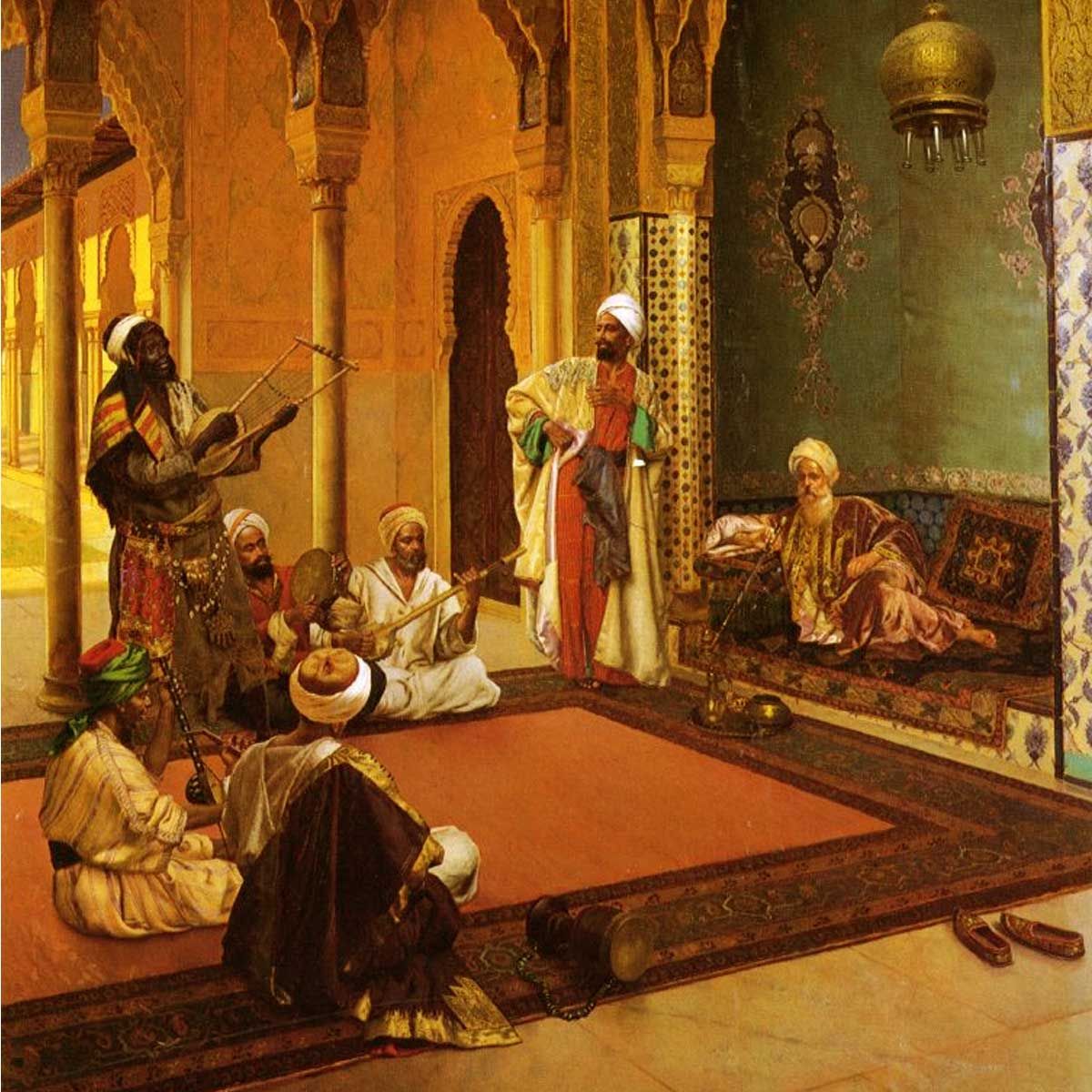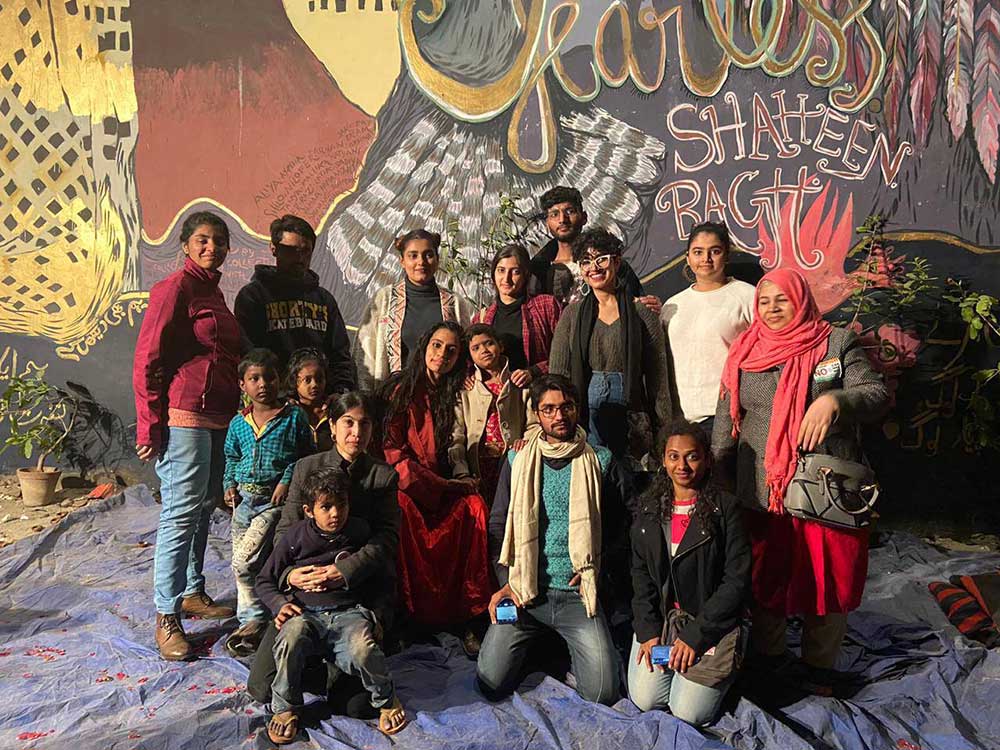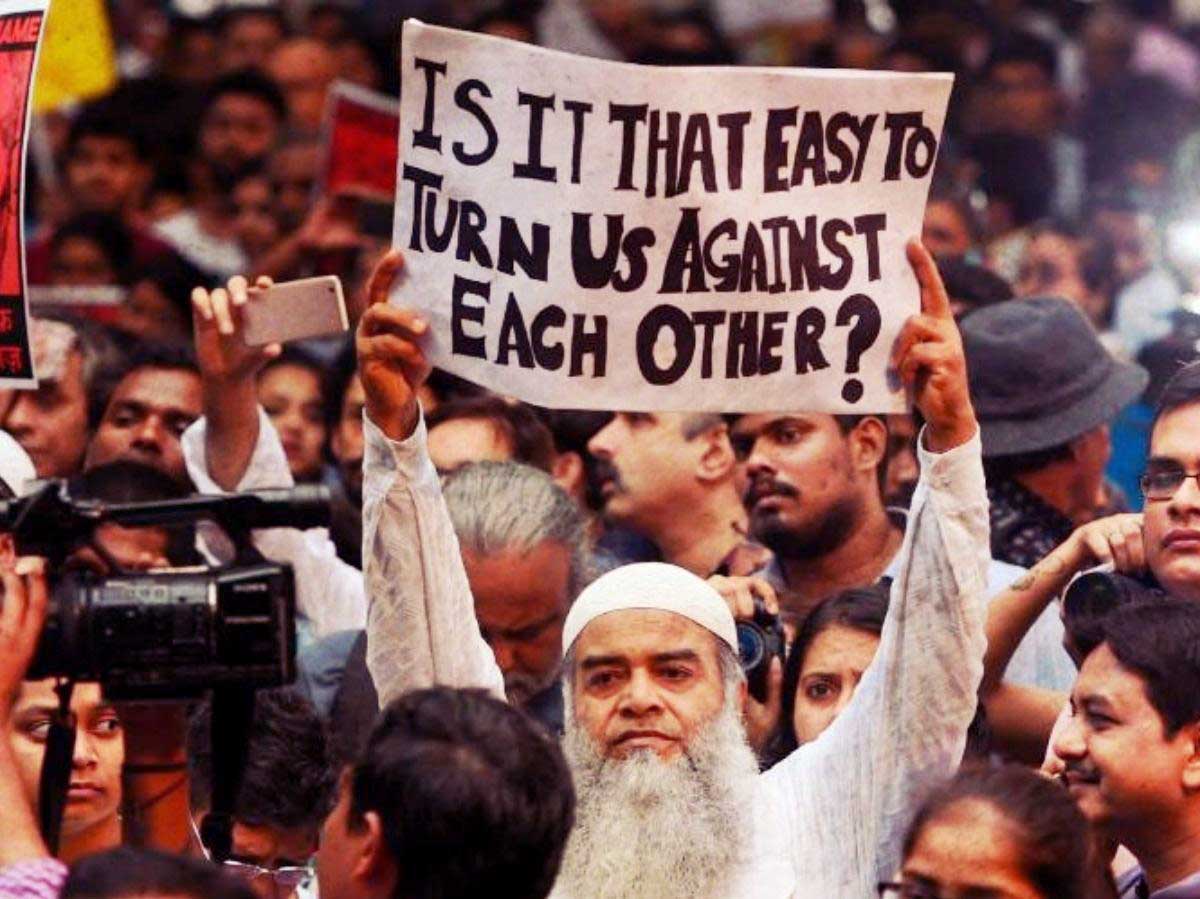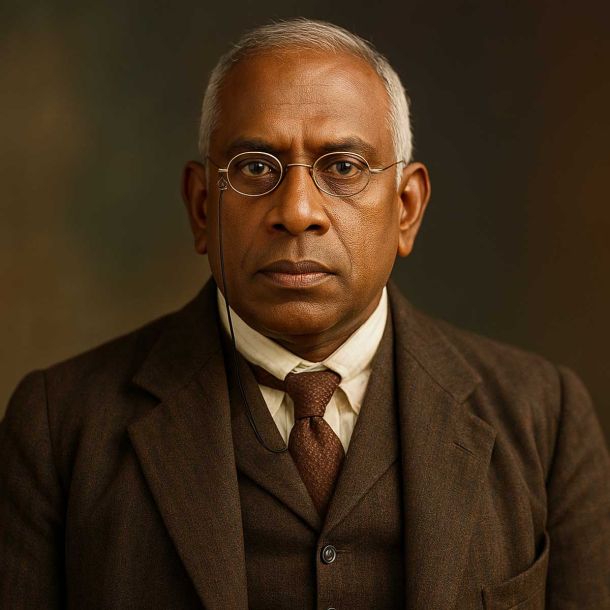MORE COVERAGE
Ban this book "Hindu View of Christianity and Islam" by Ram Swarup - Freedom of Expression

In a letter dated August 20, 1993, Janata Dal MP Syed Shahabuddin has asked the Minister of State for Home, PM Sayeed, to ban the book Hindu View of Christianity and Islam by Ram Swarup (Voice of India, New Delhi 1992). It is not his first time: in 1988, Shahabuddin was instrumental in getting Salman Rushdie's The Satanic Verses banned. This time he has not been equally successful in getting the book swiftly banned, but judicial proceedings are under way to get it banned after all. As a European India-watcher, I leave it to Indian commentators to advise the public on how to react to this new onslaught on the freedom of publication, and will limit myself to some background analysis.
To clear up a common confusion first: it is wrong to deduce from Shahabuddin's leadership role in the Rushdie affair, the Shah Bano case and the Babri Masjid campaign that the man is a communalist. Every page of every issue of his monthly Muslim India is full of "defending secularism" and "combating the communal forces". On its editorial board, you find hard secularists like IK Gujral and Khushwant Singh. The latter explicitly supported the ban on the Verses, as did Shahabuddin's co-secular elections opponent MJ Akbar, and many other pen-wielders of secularism. When the Calcutta weekly Sunday defied the ban by publishing a few excerpts, the secularist Press Council condemned this stand for press freedom as "a deviation from the path of ethical rectitude' (a lyrical way of saying: "wrong").
As for the Babri Masjid campaign: in spite of its hundreds of victims (nearly every riot of the last decade has been described in the media as "Ayodhya-related"), the entire secularist spectrum is still solidly on Shahabuddhin's side. Till today, most of them fiercely support his demand that Islam be given the privilege to plump a mosque right on what Hindu ritual convention considers Rama's birthplace, the Rama devotee's equivalent of Mecca. Far from being a communalist, Syed Shahabuddin is India's secularist par excellence.
 |
The ban on Rushdie's book has as a side-effect that everyone who finds himself in conflict with Islam gets bracketed with the Indo-British writer of below-the-belt satire on the founder of Islam. This is often an unfair comparison. Thus, Taslima Nasreen is far more sobre and dignified (and readable) than Rushdie. The same is even more true of Ram Swarup, the 73-year-old Delhi-based thinker whose essay Hindu View of Christianity and Islam is targeted by Shahabuddin.
Another effect of the spectacular worldwide success of the anti-Rushdie petition is that the book-banners' appetite for more bonfires of offending books has been whetted. Though persecution and even murder of freethinkers are nothing new, one cannot fail to notice that the last five years have seen a very high incidence of these phenomena: scores of writers and journalists have been murdered, executed or imprisoned for "insulting Islam", in Iran, Egypt, Pakistan, Algeria, Turkey and elsewhere, and even more have received threats of the same. Banning is also a regular feature. In India, the year 1993 has witnessed the attempt to get the TV serial Bible ki Kahaniyan off the screen (because it showed Abraham, considered by the Muslims as a prophet and builder of the Kaaba), and Bangladesh banned Taslima Nasreen's Lajja (not because she is a social activist, as secularists have claimed to divert attention from the real reason, but because she has broken the taboo on writing about the victims of Islam, i.e. the Hindus in Bangladesh).
The active or passive support from the secularists is certainly one factor in the arrogance of these Inquisition squads. Another source of encouragement is that even the so-called Hindu communalists never object very strongly.
They like to cite the Verses ban as a case of "Muslim appeasement", but they did precious little to defend Rushdie's freedom of publication. Quite a few books have been banned for "insulting Islam" without a word of protest from the supposedly anti-Muslim BJP. Thus, Colin Maine's The Dead Hand of Islam and Arvind Ghosh' The Koran and the Kafir have been banned for giving lists of Koranic verses which incite hatred against non-Muslims; no protest was heard. RM Eaton's doctoral dissertation Sufis of Bijapur, which debunks the pious fable of the Sufis as peace-loving humanists (in reality they were hate-mongers and spies), has been banned without any ado.
In 1990, the Delhi administration banned the Hindi translation of Understanding Islam Through Hadis by Ram Swarup, after a mob came to threaten the binder. In 1991, the English original was also banned although it had been in print and circulation for seven years. Eventhough Ram Swarup as an independent writer has occasionally defended the same positions as taken by the BJP, this party has not come out in his defence. Now, Shahabuddin requests that Ram Swarup's latest essay be banned, on the plea that it is "blatantly offensive" to the sentiments of the followers of Christianity and Islam by calling these religions "anti-human" and "lacking in spirituality".
Before discussing the contents, a juridical technicality first. Shahabuddin claims that the book re-employs material contained in an already-banned book (which in Ram Swarup's case can only be Understanding Islam Through Hadis), so that it really falls under the earlier ban. This is factually untrue: the older material re-employed in this book consists of Ram Swarup's prefaces to reprints of the Mohammed biographies by W Muir and DS Margoliouth, which have so far not been subjected to a ban. Conversely, a ban on the present book would, by Shahabuddin's logic, lead to the automatic banning of Muir's and Margoliouth's books, at least in editions with Ram Swarup's foreword.
 |
Very briefly, Ram Swarup's thesis is the following. There is a radical distinction between the Indian (and other "Pagan") and the Abrahamic religions, which have "prophetic monotheism" as their defining doctrine. Whereas the different Pagan traditions locate the divine in a universal medium (nature), and the Upanishadic tradition locates the divine dimension within the consciousness of each individual, the Abrahamic religions make the divine presence in this world into the exclusive preserve of a Chosen People, an Only-Begotten Son, a Final Prophet.
Though monotheism has a recorded history of endless wars against the worshippers of "false gods", one might conceive of monotheism as a less harmful, inclusive belief system: the belief that there is one God who is worshipped by people in numerous different forms. It is in this sense that many modern Hindus understand the Vedic religion as monotheistic ("The wise call the One Truth by many names"). However, that is decidedly not the view of the Abrahamic religions. From Moses who smashed the Golden Calf and had all sacred groves cut down and idols broken, down to the Afghan mujahedin who go to Buddhist ruins to behead the left-over Buddha statues, the Egyptian terrorists who threw a bomb into the famous pharaonic temple at Karnak in 1992, and the Pakistani and Bangladeshi mobs who destroyed hundreds of Hindu temples in 1992 as well as on earlier occasions: intolerance of alternative ways of naming and picturing the divine has been a regular feature of this monotheism.
An important factor in the intolerance of Abrahamic monotheism is its combination with prophetism, i.e. the belief that this God reveals Himself exclusively through special spokesmen, prophets. On the one hand He is the only God, valid for all, on the other hand He is only accessible to the Prophet or Saviour and his coterie. Ram Swarup therefore calls Islam and Christianity "proxy religions", where religious experience is not direct but through an intermediary. It is in this sense that they are "lacking in spirituality".
To an extent, the belief in privileged mediums of the divine is present in all religions. Brahminism has its reliance on professional karmakânDa (priestcraft), which is however counterbalanced by the self-reliant Upanishadic jñânakânDa (cultivation of individual consciousness). Many religions used diviners, experts of techniques to know the divine will. Shamanism is centered around mediumistic practices: the shaman allows a spirit to take possession of his body and mind, and becomes, a channel for spirit revelations.
A famous case is Chengiz Khan, who would go into a trance and utter spirit messages, which a secretary wrote down and read out to him after the trance subsided. The messages, attributed to the sky-god Tengri, included instructions on which country to attack next, and Chengiz duly obeyed these instructions. If these spirit messages had been compiled into a book, it would be a fairly exact parallel to the Quran: Mohammed too received messages while in a trance (wahi), and he too obeyed the divine instructions leading him into military campaigns.
There is however a crucial difference between this shamanistic "channeling" of spirit messages, and Abrahamic prophetism. While no shaman or oracle declared to be the exclusive medium of divine messages, and while the ruthless Chengiz Khan had at least the merit of religious pluralism and respect for all religions, the Abrahamic prophets do show an increasing tendency to exclusivism and intolerance. The earliest Hebrew prophets are still part of the shamanistic tradition, wedded to one particular god, but aware and respectful of other gods speaking through other mediums. But with the growing impact of monotheism, intolerance becomes the norm and soon leads to massacres of the priests and prophets of other traditions (as that of the Baal priests by Elijah). The end result is seen in the Gospel, where only those who believe in Jesus are said to win salvation, and in the Quran, where those who refuse to believe in Mohammed's prophethood are sentenced to subjugation or death, and to eternal hellfire.
 |
It is remarkable that the Abrahamic mainstream religion, Judaism, later softened into a humane religion which practised "live and let live", while its offshoots Christianity and Islam became the torch-bearers of exclusivism and of the monotheist ambition of world-conquest. This is one of the reasons why the use of the term "Semitic" (occasional in this book, systematic in some publications by Romila Thapar and other secularists who allege that the Hindutva movement represents a "semitization of Hinduism") is unfortunate: prophetic monotheism is by far not identical with the religious traditions of the Semitic-speaking peoples. Some Semitic peoples, notably the Arabs, had prophetic monotheism imposed on them by force; while the New Testament as the founding statement of the monotheist campaign of world conquest, was written in non-Semitic Greek.
In contents too, the Gospel represents a departure from the "Semitic" Hebrew tradition, in that it created a credal religion. Judaism is a communal religion, a nation, to which you can belong regardless of any statement of belief. Like Hinduism it requires that you abide by certain rules, but takes a relaxed attitude towards items of belief. By contrast, Christianity and Islam are based on a declaration of belief (the Nicean Creed, the Shahâda); even small differences on points of belief have led to large-scale persecutions of the "heretics". Mature rabbinical Judaism (a creation of the much-maligned Pharisees) presents a mixed picture of theological exclusivism along with practical respect for the multiplicity of viewpoints, fostered by the sublime Talmudic hermeneutics and by the day-to-day experience of living as a vulnerable minority. But Christianity and Islam in their classic forms have been highly intolerant religions, to the extent of trying to weed out all other religions by means of propaganda campaigns and military conquest.
It is correct that Ram Swarup describes Christianity and Islam as "anti-human". This could be understood in the ordinary sense, after listing atrocities on unbelievers and heretics down the centuries. But here it is meant in a profounder sense, viz. that they do not respect humanity and human beings as such; rather, they believe in two humanities with a radically different status. "Outside the Church no salvation", non-Christians are doomed to eternal hellfire, and they should not count on much respect in this world either (ask the Native Americans, or the Hindus of Goa whose priests were killed and temples turned into churches). The Quran is even more outspoken about this doctrine: the unbelievers have not only forfeited heaven, but the earth as well; they must be enslaved or put into a position of third-class citizens. Other Voice of India publications have mustered the evidence from scripture and history to prove this "anti-human" trait in prophetic monotheism.
There is no doubt that with his ban petition, Syed Shahabuddin is targeting Voice of India as a whole. He wants to intimidate and silence the one intellectual centre which is busy processing ideologies, history and contemporary problems from the Hindu viewpoint. While Islam, Christianity and Communism have an enormous apparatus at their disposal. Hindu society has practically no institution that can represent it in the intellectual arena. Considering its humble means, Voice of India has done a remarkable job so far.
To give just one example: the two-volume study Hindu Temples, What Happened to Them (1990~92) by Sita Ram Goel has caused quite a panic among "secularist" historians who claim that there was always Hindu-Muslim amity and that the Islamic temple destructions are a myth. Its first volume gives the list of 2000 Muslim monuments including many mosques standing on the sites of demolished temples, list which is never quoted or discussed. The only review of this first volume (by Manini Chatterjee) dismisses it as a "very bad book", but fails to pick a single hole in the book's thesis. Of the hundreds of secularist historians who have signed statements denouncing "communal history distortion", not a single one has been able to challenge even one of the 2000 claims in the list. No wonder that all the anti-temple publications carefully ignore this book.
It gets even more serious when we come to the second volume, which gives hundreds of Islamic testimonies of systematic temple destruction, presents in full the Islamic theology of iconoclasm, and conclusively refutes the recent canard that Hinduism has a similar record of persecution vis-à-vis Buddhism. It also describes in detail a few crass cases of history distortion by reputed Marxist historians. That is why this book, which is the key to the whole Ayodhya affair, has been absolutely ignored. Eminent secularist historians hope and pray that this book does not reach the libraries of foreign India-watchers, because their balloon of "eminence" could get pin-pricked. They strongly sympathize with Syed Shahabuddin's assault on Voice of India, but hope that the latest ban petition doesn't give too much publicity to this dreaded book. The book now targeted for a ban is equally dangerous, but at a different level. It is one of the first attempt to process the world-conquering religions in terms of Hindu spirituality. So far, it was usually the other way round: Hindus tried to live up to the standards set by their enemies, to rethink Hinduism in terms popularized by the spokesmen of Islam and Christianity.
 |
Thus, Swami Dayananda Saraswati's Satyartha Prakash ("Light of Truth", 1875), probably the very first Hindu writing to polemicize against Christianity and Islam, has interiorized some of the prophetic-monotheistic categories upheld by Christian preachers: it rejects idol-worship and polytheism, and claims the Veda as the sole revealed scripture. Even when defending Hinduism, the Swami was casting it in the mould of its enemy religions. At that time, this was perhaps the best thing one could realistically hope for, and it is not to detract from Dayananda's merit that we notice how even in criticizing Islam and Christianity, he implicitly extolled them by putting their imprint on his own Hinduism.
But Dayananda at least took the trouble of studying and criticizing Christian and Islamic scriptures in detail, and of showing that there was much "anti-human" and "lacking in spirituality" in them (no wonder, his chapter on Islam got banned by the provincial government of Sindh). By contrast, later Hindu spiritualists like Vinoba Bhave, the Ramakrishna Mission, and numerous Swamis and secularists, have merely memorized a handful of goody-goody points from the Bible and the Quran, and hold these up as proof that "Hindus have a lot to learn from them", or that "all religions essentially say the same thing". This nauseating sentimentalism has by now become an unquestionable dogma, except among those anti-Hindu secularists who insist that there is a radical difference after all: between Mohammed's proto-socialist religion of equality (or Mother Teresa's religion of love and charity) on the one hand and abominable caste-ridden Hinduism on the other.
It is against this background that the publication of Ram Swarup's analysis of Christianity and Islam should be evaluated as a major event. Much to the indignation of those who treat Hinduism as a museum object, this book proves that Hinduism is not yet dead. Conversely, banning this book would send a signal that the present establishment will do what it can to prevent Hinduism from rising up, from regaining self-confidence, from facing the challenge of hostile ideologies.
Syed Shahabuddin's plea is implicitly based on the right of Christians and Muslims to be spared the existence of literature which might hurt their feelings. But for adults, no such right exists. We all have to live in a world where opinions mercilessly challenging our cherished beliefs are at large, in print and on the air.
Just ask the Hindus. They, and all non-Muslims living near mosques, have to hear five times a day that "there is no God but Allah", implying that Shiva, Vishnu and the rest are false gods and that all religions except Islam are false. The Quran itself minces no words in denouncing every form of "unbelief", esp. the Arab polytheist religion which had so much in common with Hinduism; yet, millions of copies of this book are freely available in India. And it is not only from the Islamic side that Hindus have to live with criticism. In spite of some agitation, Dr. Ambedkar's book Riddles in Hinduism is not only freely available in India, but has actually been published with taxpayers' money by the Government of Maharashtra.
 |
The harsh treatment to which Hinduism has become used esp. as compared with Islam, comes out most clearly when we survey the Western and Christian reporting on these two religions. Both in India and abroad, Christian missionaries spread no end of pamphlet literature denouncing Hinduism as "anti-human" (any secularist will gladly repeat the list: dowry, female infanticide, untouchability, sati) and as "lacking in spirituality" (Sai Baba's materialist miracle-mongering, Rajneesh's "tantrism", the "selfish godless navel-contemplation" of yoga). Invariably, Hinduism itself is branded as being the root cause of all kinds of social evils. Thus, though none of the people involved in female infanticide in Tamil Nadu has ever declared that "I killed my infant daughter because it is what my Hindu religion tells me to do, still most articles on this strictly secular problem will convey the message that "this is what their religion does to them".
By contrast, when social evils of Muslim society are dealt with, care is taken to exonerate Islam itself beforehand, and to treat these evils as aberrations. When mujahedin who kill Christians in Egypt explicitly declare that they do this as a matter of religious duty in a Holy War, quoting chapter and verse from the Quran, even Christian papers will claim that in fact, these persecutions are a "violation of the true Islam, which is a religion of peace". The history of Islamic slavery, which deported many more Blacks (apart from millions of Whites and Indians) than the Atlantic slave trade, is invariably approached with kid gloves, if mentioned at all. Though the. Western press does show a lot of gun-wielding Islamic militants, it is absolutely untrue that Islam (as opposed to a supposed aberration called "fundamentalism") is getting a raw deal. Neither the Press, nor the academic Islamic Studies centres, nor the Christian churches show any inclination to subject Islam to criticism.
Shahabuddin claims that not only Muslims will feel hurt by Ram Swarup's book, but Christians as well. This looks like a ploy to enlist Christian support, just in case this becomes another big affair. But it seems he is totally unaware that Christians have grown accustomed to living with much fiercer criticism (apart from crude satire) than what Ram Swarup politely offers in his essay. Let me give a few examples from the past decade.
In Kriminalgeschichte des Christentums, the German leftist scholar Karl-Heinz Deschner surveys the "criminal history of Christianity". It describes the Christian march to the status of world religion through scriptural fraud, complicity in social evils, disruption of the Pagan majority culture, capture of state power by all means, followed by persecution of the Pagans, falsification of history, book-burning etc. It gives information similar to that in the offending parts of Sufis of Bijapur, but it is -much more comprehensive and scathing in tone. Even so, it is freely available in Christian countries.
In Histoire du Mèchant Dieu, the French right-wing scholar Pierre Gripari debunks some pious fables about the creators of the Judeo-Christian tradition. Thus, he points out the racist trait in Abraham's family, a Mesopotamian immigrant tribe in Palestine: Ismael is rejected as Abraham's son because his mother is Egyptian; Esau is rejected as Issac's heir because he has taken Hittite wives rather than getting wives from Mesopotamia, as Jacob does; Jacob's sons murder their sister's Palestinian bridegroom with his entire clan. Gripari also draws attention to the fact that Moses' brother Aaron encourages the Israelites to worship the Golden Calf, yet he is the only one who servives Moses' crackdown on the "apostates". Explanation: like Mao's "Hundred Flowers" campaign, Aaron's Golden Calf movement was a calculated provocation to bring the simmering opposition to Moses' policies out in the open, so as to destroy it more effectively. Though this candid secular reading of the Bible may be shocking to some, the book can be bought in bookshops throughout Europe.
 |
In Is Christianity True?, Bible scholar Michael Arnheim dissects the Scriptural sources of some basic Christian beliefs, and shows that the semi-literate Gospel authors have poorly concealed their innumerous concoctions and distortions. Thus, in their frantic attempts to show that Jesus was born in Bethlehem, as the Messiah was supposed to, they land themselves in contradictions and demonstrably false historical claims (e.g. there was no Roman census at the given time) which give the game away. After fabricating a genealogy linking Jesus' father Joseph with King David, they declare that Jesus was born from a virgin and Joseph was merely his forster-father. They also don't manage to conceal that Jesus's contemporaries considered him an illegitimate child, which completely explains why the Gospel writers had to invent the "virgin birth". Similar made-up stories are shown to surround the other great moments of Jesus' life. This type of historicization of sacred narratives is increasingly accepted, and some Catholic theologians (Hans Kung, Edward Schille-beeckx, Eugen Drewermann) go all the way in a similar "demythologization" of the Gospel.
In Jesus de Messias, Was het Christendom een Vergissing? ("Jesus the Messiah, Was Christianity a Mistake?"), the Flemish psychologist and Bible scholar Dr. Herman Somers, an ex-Jesuit, argues that "Christianity was a mistake": its basic doctrine, conveyed by Jesus to his illiterate and gullible followers, was a delusion about himself, viz. that he was the Son of God. Dr. Somers goes on to argue that those parts of the Gospel which can reasonably be taken as authentic, show us a Jesus who clearly suffers from a pathological delusion, accompanied by typical symptoms including the catastrophic sense of an impending end of the world. With this approach, Dr. Somers is not an eccentric: he merely refines and elaborates a hypothesis which had earlier been formulated by other psychologists and Bible scholars, and which is increasingly capable of explaining all the riddles which centuries of Christian Bible research had left unsolved. Far from being a "misplaced projection of modern categories onto a radically different culture", this approach is partly based on information given in the Gospel itself, where Jesus' family is said to think that he had gone out of his mind.
In 1993, Dr. Somers published a similar study on Mohammed (Een Andere Mohammed, "A Different Mohammed"), whose life and personality are known to us in far greater detail than that of any other Abrahamic prophet. His bold conclusion is that Mohammed suffered of a very typical case of paranoia, complete with frequent hallucinations and a fundamental delusion about himself, viz. that he had been selected by God for a special mission. Again, it is in Islamic scripture itself that we find Mohammed's contemporaries describing him as "ghost-possessed" and "a mad poet". The ancients did not have our developed science of psychopathology, but they did have a healthy skepsis when confronted with claims of divine mission and of hearing God's own voice.
One may or may not agree with these theories, but the point is: this is the kind of intellectual exploration which secularism has made possible in ex-Christian society, and this is the point of comparison by which one can measure whether Ram Swarup's book is an outrage and a threat to secularism.
It seems to me that in comparison with the above mentioned Western secular authors, Ram Swarup's approach is more respectful and less hurtful for the human beings who call themselves Christians or Muslims, even if it is equally devastating for the doctrines of Christianity and Islam. The difference is that the said Western authors, who tend to identify religion with the type of religion they themselves grew up with (mostly Christianity), end up rejecting religion altogether, rather than just the specific doctrine they are criticizing in detail. Belivers who hear that a point of belief is being refuted, may get panicky because they think that the religious basis of their lives is under threat. In the case of many ex-Christian secularists, that is indeed true: along with the outdated belief in Jesus Christ, they are rejecting the entire spiritual dimension. Or if they have shown that Mohammed was suffering of a common paranoid delusion, they think that henceforth every person somehow associated with religion has a mental problem.
 |
At this point, Ram Swarup's approach is radically different: he does value religion, and his critique is not from a secular but from a religious angle. In that sense, he is more up-to-date than the Western secularists, because many modems have come to recognize that there is still a need for religion even after Christianity, and even after man has awoken from the slumber of superstition and pre-scientific ignorance.
In a sense, Islam is currently capitalizing on this postmodern revival of religion. While the disillusion with secularization is felt across continents, and Western man is looking for new forms of spirituality, Islam happens to still be sitting in a power position in most of the lands it once conquered. In the religious sweep often dubbed as "fundamentalism", a distinction must be made between on the one hand this universal trend of religious revival (with its rejection of decadent consumerism and of Americanism), and on the other hand the medieval grip of Islamic doctrine, which is still in place and ready to use the religious fervour of the people for its own ends.
It is unfortunate that Iranians who had a good case in revolting against the Shah, ended up persecuting Bahais and other minorities, simply because Islam has channelled people's religious commitment to acts of intolerance. The thing to do is to show them that religion is possible without belief in exclusive revelations, final prophets, and divisions of mankind into saved believers and doomed unbelievers; to remind them that in fact, their own ancestors used to practise a religion which provided for the spiritual as well as the ethical dimension of life without identifying them with this obsession with some historical character who claimed prophethood.
Those educated Muslims who are willing to rethink their religion, will feel much more attracted to the thoughtful Hindu critique of Ram Swarup than to the sweeping secularist critique of atheist Western authors. After getting over their initial shock with Ram Swarup's radical questioning of Islam's exclusivist claims, they will realize that this Hindu approach preserves and respects all that they consider humanly important in religion: values of self-restraint, inferiority, awareness of a larger whole, participation in the common good. They may well come to realize that there is life after Islam, even a good and spiritual life. That is why Syed Shahabuddin does well to try and get this book banned: with this book, Islam is in danger.
References:
voiceofdharma.com - Freedom of Expression - Sita Ram Goel - Voice of India, New Delhi
 Support Us
Support Us
Satyagraha was born from the heart of our land, with an undying aim to unveil the true essence of Bharat. It seeks to illuminate the hidden tales of our valiant freedom fighters and the rich chronicles that haven't yet sung their complete melody in the mainstream.
While platforms like NDTV and 'The Wire' effortlessly garner funds under the banner of safeguarding democracy, we at Satyagraha walk a different path. Our strength and resonance come from you. In this journey to weave a stronger Bharat, every little contribution amplifies our voice. Let's come together, contribute as you can, and champion the true spirit of our nation.
 |  |  |
| ICICI Bank of Satyaagrah | Razorpay Bank of Satyaagrah | PayPal Bank of Satyaagrah - For International Payments |
If all above doesn't work, then try the LINK below:
Please share the article on other platforms
DISCLAIMER: The author is solely responsible for the views expressed in this article. The author carries the responsibility for citing and/or licensing of images utilized within the text. The website also frequently uses non-commercial images for representational purposes only in line with the article. We are not responsible for the authenticity of such images. If some images have a copyright issue, we request the person/entity to contact us at This email address is being protected from spambots. You need JavaScript enabled to view it. and we will take the necessary actions to resolve the issue.
Related Articles
- The Communist Conspiracy - Hindu Society Under Siege
- Significance of Hindu Society - Hindu Society Under Siege
- "In public realm, secularism should not concede a single inch to religious intrusions": India never knew a theocratic state till Islam entered Bharat, Hindu Dharma always was a pluralistic religion till genesis of Nehruvian Secularism for mystic reasons
- Hindu Spirituality Versus Monotheism - Defence of Hindu Society
- Plea for a Perspective: The Story of Islamic Imperialism in India
- Hindu seers and sages could tap sources of universal spirituality because they did not start with an a priori assumption of an Almighty God whom man had to fear and obey in awe and objection - Defence of Hindu Society
- Historian with Communist glasses: When Pandit Nehru rose to unrivalled power and position in India his book 'Glimpses of World History' was recommended as a reliable reference work for advanced students of history in Indian universities
- When true Historian Sita Ram Goel's Challenge Became a Nightmare for Marxist Historians
- "If chicken and geese pass a resolution about peace, the wolf is not convinced": Hindus have to know that Christianity & Islam ain't religions but imperialist ideologies whose appetite has been whetted by running roughshod over a large part of the world
- Sanãtana Dharma Versus Prophetic Creeds - Defence of Hindu Society
- Islam Imposes an Emergency on India - Freedom of Expression
- In Search of a Culprit - Genesis and Growth of Nehruism Vol 1
- The Residue of Christianism - Hindu Society Under Siege
- "आफ़रीन": From Sindh’s mass enslavement by Muhammad Qasim to temple demolitions by Sikandar Lodi and Malik Kafur’s southern raids, this gripping account exposes the brutal legacy of Islamic imperialism in India through Arab, Turk & convert rulers alike
- Standing Up to Scrutinize Islam - Freedom of Expression
Related Articles
Twitter Coverage
Satyaagrah
Written on
Satyaagrah
Written on
Satyaagrah
Written on
Satyaagrah
Written on
Satyaagrah
Written on




















